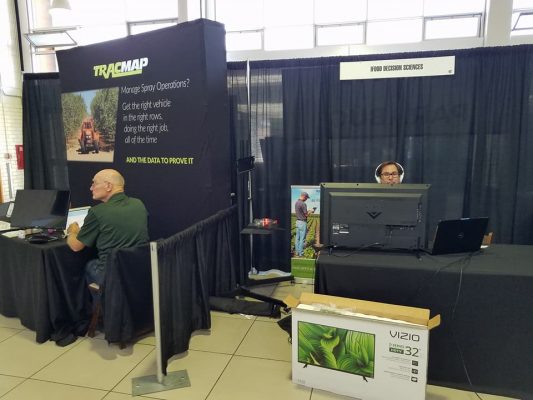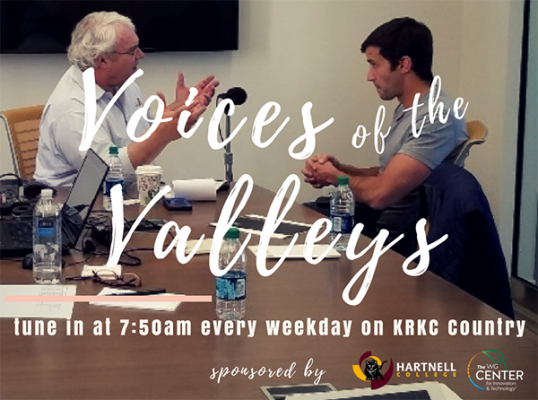Companies
Q&A: Meet Andrea Chow, Ontera SVP of Engineering

Interview conducted and transcribed by Amy Wu,
founder and head of From Farms to Incubators
November 1, 2019 — Santa Cruz, CA
(Photo above: Andrea Chow, Ontera SVP of Engineering. Contributed)
Andrea Chow became SVP of Engineering at Ontera (previously Two Pore Guys) earlier this year. Ontera’s primary focus is on supporting sustainable agriculture. Amy Wu, founder and head of From Farms to Incubators, conducted and transcribed this interview.
Amy Wu (AW): I see your background is in biotech. How did you get into this field?
Andrea Chow (AC): My journey into biotech is actually a little windy because my training is in chemical engineering. I remember when I was in high school, taking a biology class and the teacher was not at all inspirational and I told myself I would never be related to anything in biological science. Biology seemed to be a lot of this rote memorization and that was not very easy. Then I did my undergrad in chemical engineering and grad school chemical engineering. I focused on a field called polymer radiology (polymer material aspects) where the application is broad.
I started my career in the defense industry. Back then it was Lockheed Space, where it was high spring lightweight materials, but at some point, I aspired to a higher goal. I understand we need defense to keep the country safe, we need to build these missiles that hopefully never get used but I was a little disappointed in taking what I know.
I then went to Caliper Technologies Corp., which focuses on this area called microfluidics, driving fluid at a very small scale in order to do analytics and bioanalytics. They were looking for engineers who can help design these chips, even though I didn’t have a biotech background. They (Caliper) took a chance on me, so that’s how I got into biotech. Once I got into the company, I realized I could beef up my background in biology. I took UC Berkeley extension courses in molecular biology and cell biology, and then, all of the sudden, my whole world changed. The way I looked at biological sciences, it actually made sense. There’s a method to it, there’s reason, there are fundamental principles that guide the science, and it’s not just pure memorization. The reason I had actively sought to go into biotech was all of the genetic engineering that was going on at that time. I knew the biological sciences are a very rich area to explore, so that’s how I got into biotech and life sciences.
AW: : Why did you decide to join Ontera?
AC: I started in February here. The conversation started back in November 2018, when I got an email from a headhunter who shared this. I looked on the website and thought wow the technology sounds really cool. Then I met the founder, William Dunbar, the cofounder, and the broader team, and I liked the technology and applications. I really liked the company’s vision and mission of what we are trying to do.
AW: Tell me a bit about your day-to-day role?
AC: My background is in engineering, and then, as I told you, I was at Caliper and I grew with the company, and learned a lot about biological applications and how we could integrate it into micro fluidity. I worked side by side with the instrument hardware and software engineering team to build a full solution, which means marrying hardware and software with chemistry, biology and the cartridge. When I worked at Promega, hardware and software integration, I was leading a team of engineering talent that was all over the place geographically. That was interesting from the standpoint of getting the teams working together and building products that can improve productivity. I love the aspect of product development. There’s a clear distinction between early-stage research versus development. I think the rewards are different, and I found myself really drawn to development, where I think some of the hardest parts were the system integration (pulling all of the pieces together), to detect why it’s not working, and fixing. So that leads back to Ontera. This is my dream job, being able to lead an engineering team to solve the hardest problems in product development.
AW: I see agtech is a new component at Ontera?
AC: We have been working on it for a couple of years. We started in agtech because we have a very strong partner. The partner is Bayer Monsanto and having that strong partner to help us get in the space was important. The instrument was robust and easy to use. Competitiveness is a challenge, but once we solve that problem, our technology can be applied to human diagnostics and many other areas. The nice thing about starting in agtech is we don’t have to go through the regulatory hurdles to begin with. And once we prove the value of our technology in that area, we can have the revenue and funding to expand into human diagnostics.
AW: In terms of the device, what problems does it solves for growers?
AC: The problems we are looking at is pathogen testing to fight resistance. Much like in humans, over-use of antibiotics and accelerating the superbug resistance has been a problem in ag, where overuse of pesticides can also cause superbugs. So we are targeting precision treatment in the field in one application.
The other one is through the identification of traits in crops, which can enable more transparency in the food chain.
The way we are looking at our product is: we are building a platform, and that one platform can be applied to multiple usages. A similar instrument and cartridge allows us to serve many different applications.
###
Amy Wu is the founder and head of From Farms to Incubators
###
Tagged agtech, Biotech, Ontera, Two Pore Guys








